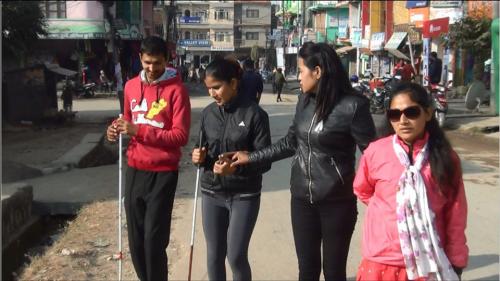
Link 1 http://www.myrepublica.com/news/38333/?categoryId=37
March 20, 2018
The rights of persons with disabilities are still being negated and neglected in most parts of Asia. Very few states in the continent explicitly provide legal protection and even fewer have adopted any form of legislation on disability. Such a failure of domestic laws underscores the potential importance of international human rights law in steering national responses in most of the Asian states towards greater concern for people with disabilities.
The disability movement in most Asian countries is not guided by the human rights principles and social approaches. Rights activists have been found to be divided into different political interests rather than being united for disability rights. The movement has not been successful in addressing real challenges faced by rural disabled persons.
Most importantly, lack of transparency within disabled people organizations (DPOs) is a major concern. Democratic accountability is more crucial to end corruption deeply rooted within DPOs as the funding to DPOs is tax payer’s money.
Helping hands
With the adoption of Convention on the Rights of Persons with Disabilities (CRPD), the rights of people with disabilities have received much more prominence than in the past. This has provided widespread consensus about importance of international law in the efforts to improve the lives of people with disabilities.
Many people with disabilities need assistance and support to achieve a good quality of life and to be able to participate in social and economic life on an equal basis with others. A sign language interpreter, for instance, enables a deaf person to work in a mainstream professional environment. A personal assistant helps a wheelchair user travel to meetings or work.
An advocate supports a person with intellectual impairment to handle money or make choices. People with multiple impairments or older persons may require support to remain in their homes. These individuals are thus empowered to live in the community and participate in work and other activities, rather than be marginalized or left fully dependent on family support or social protection.
A wide range of barriers operate to prevent people with intellectual disabilities exercising legal capacity on an equal basis with others. Perhaps the most prominent ones are those created by plenary and partial guardianship laws. The deprivation of legal capacity and guardianship still exists in developing Asian nations like Nepal, which shows that our legislation is not yet in line with the provisions of CRPD.
State parties must holistically examine all areas of law to ensure that the right of persons with disabilities to legal capacity is not restricted. Despite Asian countries having ratified the CRPD, not much has been done by the governments for persons with intellectual disabilities so far. This means that women with intellectual disabilities, living in remote rural areas, experience double marginalisation—first as women and then with disabilities, which often results in their social exclusion.
States should draft enforceable legislation on right of disabled people to independent living to promote, protect and ensure the full and equal enjoyment to all human rights by the people with all types of disabilities.
Overcoming barriers
A wide range of barriers prevent women with disabilities from accessing justice. Discrimination and stereotypical mindsets are the first hurdles. Then there are legal barriers, poverty, inadequate information or advice, insufficient resources, inaccessible architectural design, inaccessible information or communication methods, and inadequate protection from subsequent victimisation that obstruct easy access to justice for women with disabilities.
Substantive access to justice for disabled people can be assured only by facilitating their entry into, and full participation in, the legal professions, the legislature and other public offices and by involving disability rights lawyers in the design and delivery of laws, policies and services.
Realization of the right to education still is a pipedream for girls with disabilities, especially in remote rural areas. What is worrying is they have to face those challenges only because they are girls.
For example, in some rural areas of Nepal, girls during their menstruation are kept in an isolated shed as it is feared that if a menstruating girl touches a man or a plant or even an animal, some bad things happen in the family or the village. States have obligations to respect, protect and fulfil the availability, accessibility and adaptability of the right to education.
People with different disabilities and difficulties or intellectual impairments experience the lowest employment rates. They are considered as disadvantaged group in the labor market. Lack of access to education and training or to financial resources is responsible for their exclusion. Besides, employers’ perception towards disabled people is not so positive. Social protection systems can create incentives for people with disabilities.
Moreover, negative social attitudes among people about women with disabilities often make it difficult for them to enjoy their sexual and reproductive rights. They experience multiple barriers in the exercise of their rights due to intersection of age, gender, forms of disability, and in some cases, other factors of vulnerability such as social and economic marginalization.
The state must take immediate steps to ensure non-discrimination when it comes to right to health of women with disabilities.
Forms of discrimination to which persons with disabilities, especially women with disabilities living in rural areas are subjected to are many. They include physical, psychological, sexual and financial violence, neglect, social isolation, entrapment, detention, denial of health care and forced sterilization and psychiatric treatment.
All Asian countries should develop new legislation, jurisprudence, policy, and research to harness innovations and opportunities offered by United Nations Convention on the Rights of Persons with Disabilities (CRPD).










Add new comment